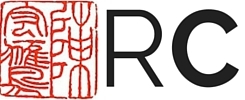You do great work.
You’re hardworking and confident in your abilities.
Unfortunately, if you’re working at a high-performing firm, everyone else feels the same away about themselves.
Ask yourself: Do others recognize me as a top performer?
If you’re not sure, then they probably do not. It’s not because you’re not good – it’s because most people are not focused on you. Like you, they are too busy working on their own careers. To succeed professionally, you need others to be aware of and acknowledge your capabilities.
I’m not asking you to pander to other people. Your self-worth is not determined by what other people think of you and to sustain excellence, it’s important that you do great work for yourself and not because you want to impress others.
Other people matter only because they can assess your value to them and they determine whether you get promoted if you work for a firm or win the business if you work for yourself.
To ensure your success, focus on these three core activities at work:
Continuously hone your craft
Whether it’s sales, research or design, you want to master every aspect of your job. Reflect on your work quality last year to assess how much you’ve improved. The more you are embarrassed by your work last year, the more you’ve improved since then.
To start systematically mastering your craft, break down your function into core elements. If you’re a consultant, your major buckets might be business development, industry knowledge, your specific consulting expertise and project management. For each of these elements, drill down to the tangible skills you can build.
For business development, you might include the following:
- Building rapport – networking
- Focused listening and needs analysis
- Qualifying the opportunity
- Organizing your approach
- Persuading others
- Pitching your ideas
- Negotiating
You can improve each one of these skills through guidance and practice. To hone your craft, you must develop a passion for it. In her book Grit: The Power of Passion and Perseverance, Wharton Professor Angela Duckworth sums up her research on top performers with two practical equations:
Talent x Effort = Skill
Skill x Effort = Achievement
To sustain the effort needed to turn talent eventually into achievement requires one to devote the time to practice deliberately. It’s difficult to put in the time needed if the interest is not there.
Identify your interests and strengths and carve out time daily to improve yourself. Take courses, read books and talk to the masters in your field and industry.
Focus on the right stuff
If you’re talented, curious and ambitious, there is a good chance you will want to start new initiatives or be pulled into various projects to help your company improve and drive results.
As a team player, your tendency will be to join many of these initiatives. It’s important for you to understand that your time is limited and not all initiatives are worth it for you. To be successful, you want to align your energy to help your company achieve its top priorities at the given time.
Working on your firm’s priorities helps you gain the right visibility because top initiatives are typically staffed with and overseen by key leaders. To figure out what your firm is focused on, listen attentively to the CEO town hall and closely observe what the top leaders at your firm are working on. If you work for a public company, read your firm’s annual report and the CEO’s letter to the shareholders to glean insights on the core focus for your firm.
Also, ask your boss where you can best contribute. Make sure to ask for details so you fully understand the necessary outcome. Your goal is to find out what you should be doing and how to go about it. Ask your boss for specific examples to gain insights into the behaviors and results he’s looking for.
Once you know your firm’s top priorities, join those project teams and deliver results.
Build a reputation for being helpful
The reputation of the lone wolf might sound appealing but it rarely gets you to the top.
In a recent conversation with the Head of HR at a Fortune 100 bank, she highlighted the importance of taking on cross-functional projects to build up the right relationships:
“As you move up in your career, your goals will have a broader scope requiring coordination across different functions and lines of business. The more you’ve helped others, the easier it’ll be for you to marshal their help for your projects.”
To better help others achieve their goals, continue honing your expertise and widen your network so you can add more value. Be generous with your time but be judicious as well so others don’t take advantage of you (I recommend reading Adam Grant’s Give and Take to learn how to spot a Taker). Your goal is to become a true resource for others around you.
Do others come to you for help? If not, then you might need to work harder on your reputation as a trusted giver.
Working on these three areas consistently requires perseverance:
- Deliberately practicing your skills every day can be a grind.
- Working on your firm’s top priorities even when you may not completely agree is difficult.
- Giving your time and energy to others takes time away from your own projects and interests.
If you can stick with these three activities, you will stand out from the rest.
Inspired by Change Anything by Kerry Patterson and Grit by Angela Duckworth
Photo by Banalities








